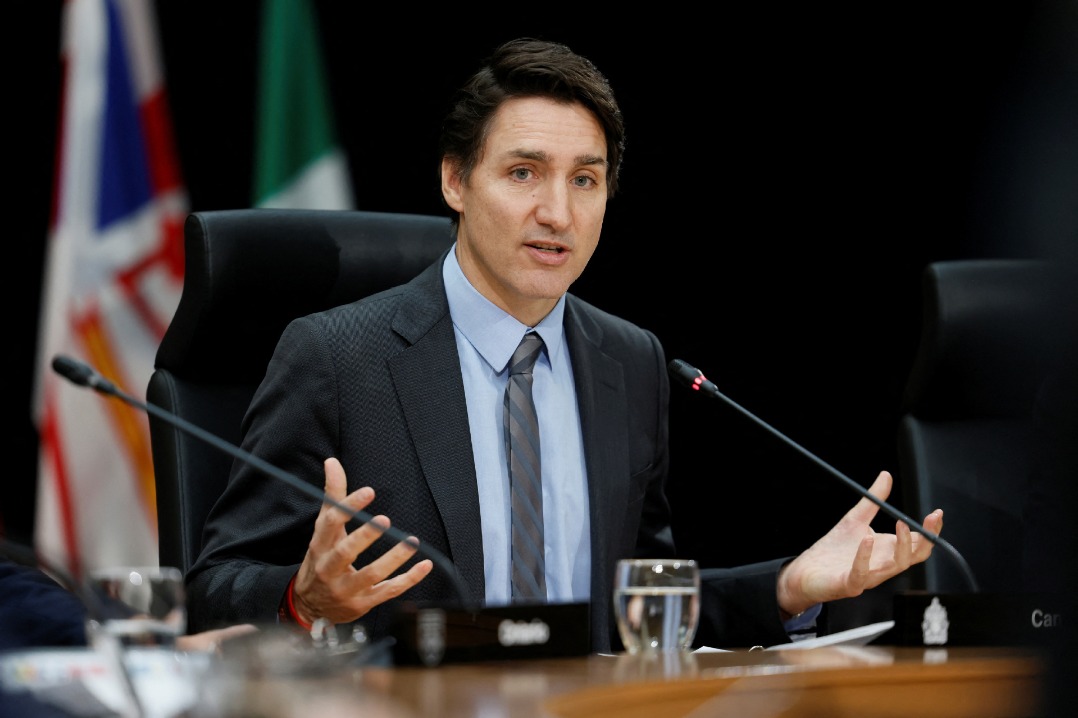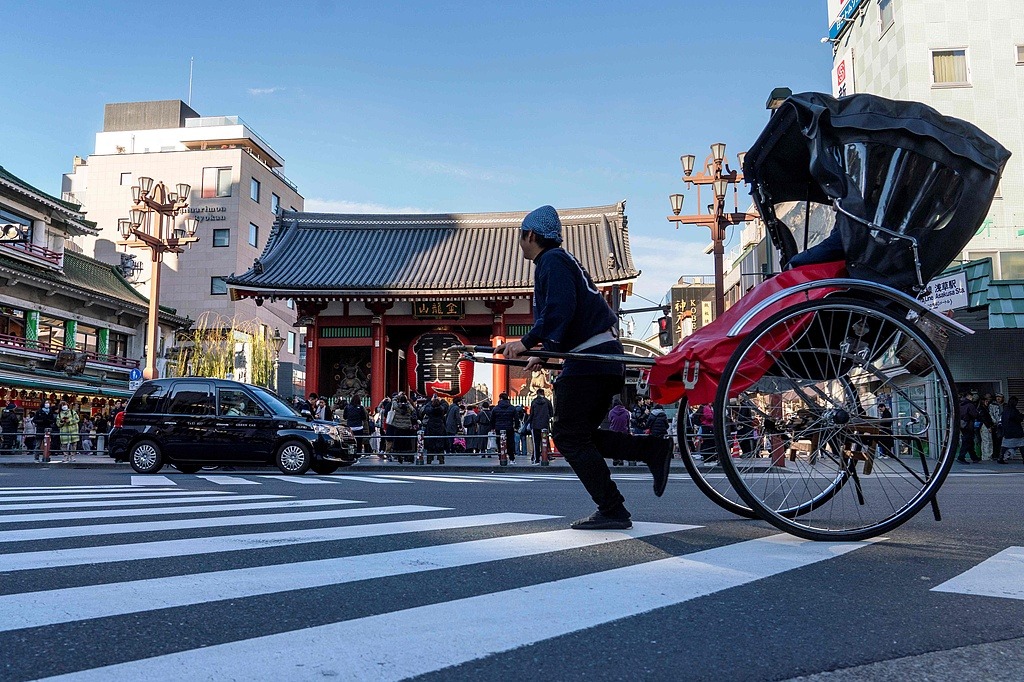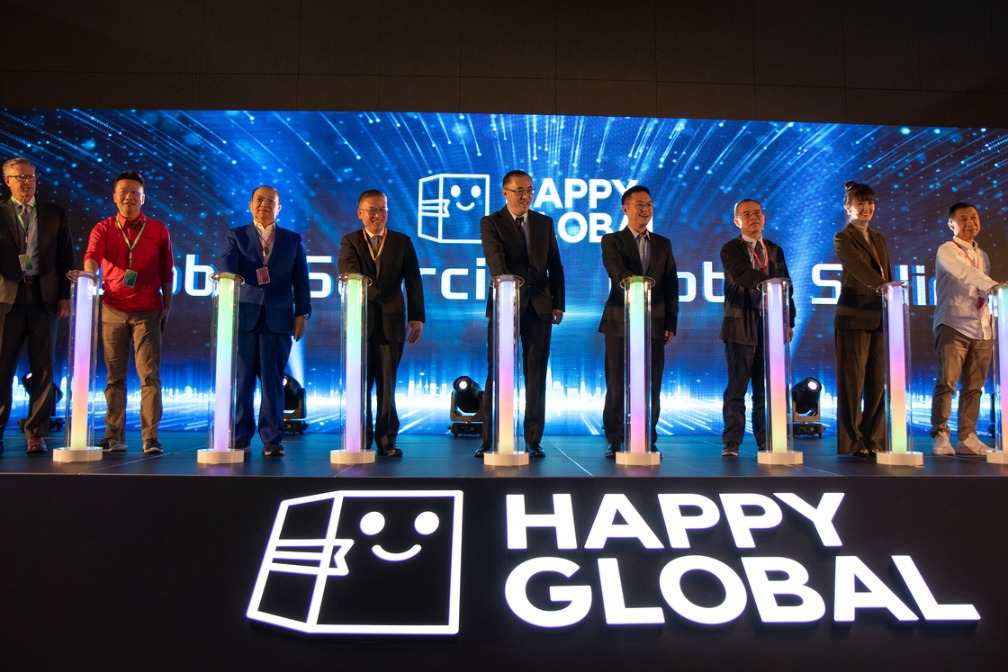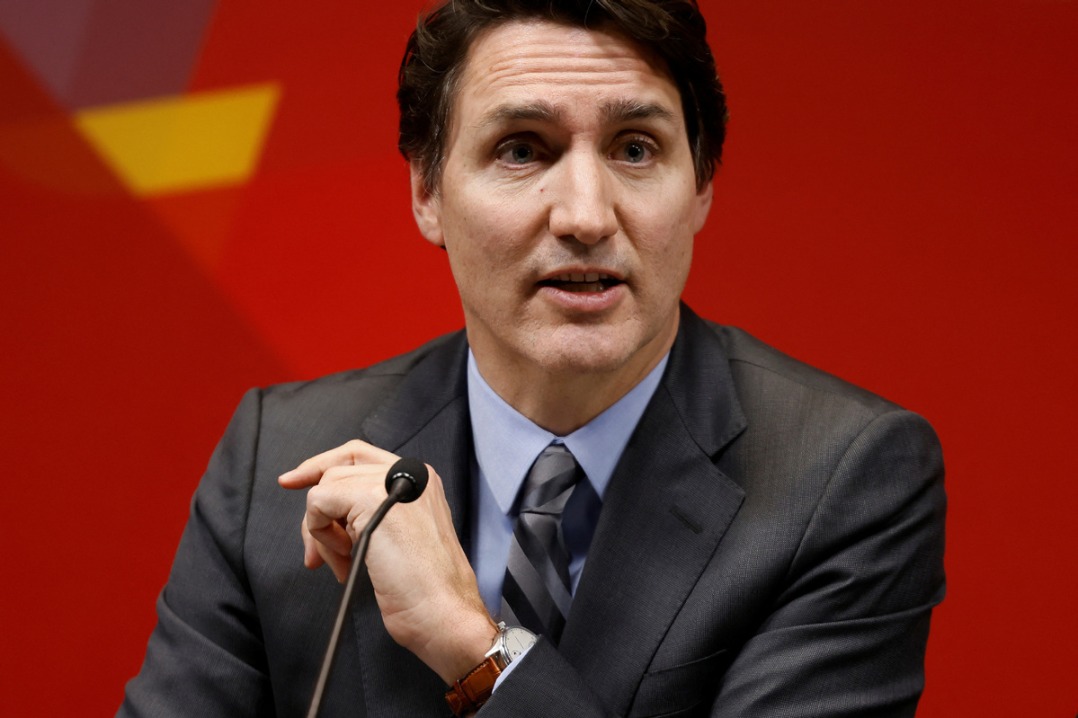Iran-US stalemate continues

A year after the United States left the landmark Iran nuclear deal, the world has yet to reach a compromise as both the US and Iran exchange words of hostility.
Efforts from the international community to ease the tension between Iran and the US and persuade Iran to continue to abide by the 2015 international nuclear accord have failed. The accord, known as the Joint Comprehensive Plan of Action, was signed by Iran and six major powers: China, Britain, France, Germany, Russia and the US.

US President Donald Trump, however, pulled the US out of the deal in May 2018 and restored sanctions against Teheran that had been scrapped under the 2015 deal, leading to a backlash from Teheran, which suspended some of its commitments under the deal.
Demands of the two sides are so fundamentally different that there is hardly any premise for them to sit down to talk, said Li Guofu, an expert on Middle East studies with the China Institute of International Studies, or CIIS.
"Trump claimed talks would be unconditional, while he actually has clearly stated his starting points. It is not only about Iran's nuclear issues, but also about the country's policies in the Middle East," he said.
Jackie Wolcott, representative of the US to the Vienna Office of the United Nations and to the International Atomic Energy Agency, said on Tuesday that Washington remains open to talks with Iran aimed at reaching a "comprehensive deal" and ending Teheran's "destabilizing behaviors" in the region.
In the current situation, Li said, as long as Iran sits down and talks, it indicates Iran is willing to compromise and in accordance with the negotiating issues envisaged by the US, signaling the success of Trump's diplomacy. "It doesn't even matter what they can achieve."
On the other hand, Iran has asked to lift the sanctions at least on its oil exports before it considers participating in talks or meetings.
Tumbling oil exports
Iranian Foreign Minister Mohammad Javad Zarif said on Monday that "the only solution for reducing tensions in this region is stopping that economic war."
Iran, which is in a weaker position, also needs to think twice before it makes any bargains, Li said.
"If Iran wants to talk, it has to make further concessions. Will this stimulate the US government to take more radical measures to some extent?" Li said, especially after the US threatened to sanction any countries that has bought oil from Iran since waivers expired on May 2.
Iran's oil shipments tumbled to 750,000 barrels per day in April compared to 1.5 million in October 2018, according to data compiled by Bloomberg.
Fighting back, Iran in late May increased its uranium-enrichment production capacity, though only of the lower-enriched uranium permitted by the Comprehensive Plan agreement.
On the bright side, despite the fierce exchanges of words, neither side wishes to open fire on the other, Li said, adding that Iran is reluctant to fight because of the disparity in its strength vis-a-vis the US.
Dong Manyuan, also a CIIS expert, said that the US does not believe a war can bring what it wants, even if that is bringing down the current government in Teheran.
A Reuters' poll in May showed that more than half of US citizens believe that the US should not attack Iranian armed forces first and 49 percent were notably sceptical of Trump's handling of Iran, despite 53 percent of US citizens in the poll saying that Iran was a "serious" or "imminent" threat.
European mediators
Major stakeholders have mediated and persuaded Iran to stick to the 2015 deal. That included a joint effort from Britain, Germany and France to set up a special trade mechanism called INSTEX that would allow legitimate trade with Iran to continue without falling foul of US sanctions.
German Foreign Minister Heiko Maas arrived in Teheran on Monday and held talks with his Iranian counterpart Mohammad Javad Zarif on preserving the nuclear deal.
Maas failed, however, on his trip to offer Iran a way to get around the imposed US sanctions.
The position of three European states is to remain obliged to their Comprehensive Plan commitments and to support the nuclear accord, said Maas.
"We want Iran-Europe trade to expand and Iran's economic growth to increase through INSTEX, and it is Iran's right to enjoy the financial benefits of the nuclear deal," he noted.
However, the official Islamic Republic News Agency slammed Maas' mission, saying it was "a combination of repeated statements about the inability of Europe to fully confront the US sanctions" and that Iran had witnessed "the poor performance of Europeans in defending the nuclear deal and fulfilling their promises".
Abe's visit
Japanese Prime Minister Shinzo Abe, meanwhile, is scheduled to begin a three-day visit to Iran on Wednesday, during which he will meet the country's Supreme Leader Ayatollah Ali Khamenei and President Hassan Rouhani.
However, Tokyo probably cannot make much progress in three days and it's questionable whether it can relieve tensions between Teheran and Washington in that time.
Lu Hao, a researcher from the Institute of Japanese Studies at the Chinese Academy of Social Sciences, said by intervening, Tokyo wishes to maintain its long-standing relations with Teheran as well as guarantee the security of its energy supply in the Middle East.
"But more importantly, Japan also needs to take into account the attitude of the US," he said.
Abe also is taking an opportunity to demonstrate that Japan can be an international mediator, thus enhancing Japan's political presence and diplomatic influence in the global community. "As for whether or not the crisis can be resolved, it seems not that important," Lu said.
Under current circumstances, it seems like no country can figure out a way to make the two sides sit down at the same table and rescue a perilous situation, said Li of CIIS.































